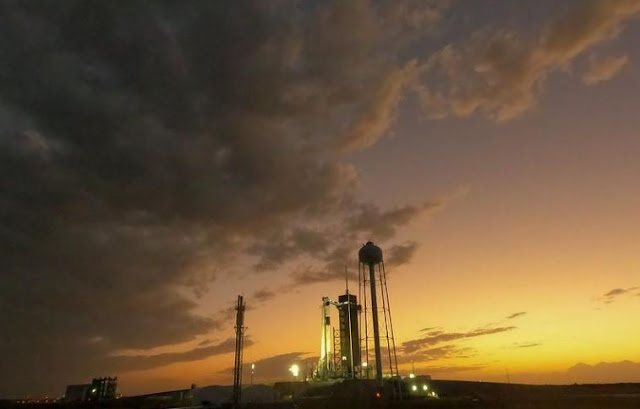
According to a recent report published by Noosphere Ventures, an aerospace investment fund established by Ukraine-born entrepreneur Max Polyakov, the European space market can benefit from Ukraine’s contribution. Besides this country’s technological and human resources, the nation is more than ready to fund ESA’s most promising initiatives. The last part may sound like a surprise, but with a deeper look at the history of Ukraine ESA cooperation, there is little doubt about Ukraine’s determination to take its space industry to a new level.
The European Space Agency started cooperating with Ukraine in 1999. Over the last 20+ years, Ukraine has been contributing to many European space projects and initiatives. So, even though the country has never officially made it to the list of ESA Member States, several joint projects have been very fruitful. On the other hand, Noosphere’s report emphasizes that there is room for more joint projects because, as of now, neither Ukraine nor ESA takes full advantage of the potential benefits a closer collaboration could bring.
Ukraine ESA Cooperation History In Detail: Why Plan More Projects?
Until Russia’s illegal occupation of Ukrainian territories early this year, Russian Federation used to be a major contributor to the ESA. Now, when democratic European states have severed all relations with the aggressor, several initiatives had to be placed on hold. At the IAC 2022 event, ESA’s Director General Mr. Aschbacher stated that it would not be easy to decouple all ties.
However, Noosphere is confident that building up cooperation with Ukraine instead would be the easiest and most cost-effective solution for the ESA. In particular, Ukraine can replace Russia in the ExoMars program. Ukrainian Yuzhnoye SDO has both the equipment and human base to develop Mars lander technology.
Ukraine keeps proving its ambitions to become a part of the European space family by cooperating on many of its projects. So, in 2018, Ukraine joined the Lunar Moon Village Association, contributing its own design of the lunar module concept. Since 2021, it has been acting as a subcontractor to Thales Alenia Space, ensuring the supply of a thermal-hydraulic accumulator for SES-17. These are only some of the recent examples of highly fruitful collaboration, and there is no reason not to strengthen these ties even further.
Aside from already operational technologies, Ukraine also boasts a talented pool of dedicated workforce who graduated from some of the best universities in this country — and the scientific community was always strong in Ukraine. Even now, the Ukrainian space industry employs over 16,000 highly-trained engineers — the same number as NASA’s staff.
In one of his recent interviews with Bloomberg, international entrepreneur and investor Max Polyakov praised Ukraine’s great potential in the space industry. The Ukraine-born entrepreneur specifically mentioned talented Ukrainian engineers working on the Firefly Alpha rocket.
US-based company Firefly Aerospace, founded by Dr. Max Polyakov, indeed has an R&D center in Dnipro, Ukraine — but it is not the only major business with Ukrainian R&D facilities. There are over a hundred of them, including the Boeing center.
After a short decline, the Ukrainian space industry is on the rise again. In 2019, the Ukrainian government allowed private companies to build launchers, and today this sector already has 60 startups ready to showcase their products to international audiences.
Plus, Ukraine is not a new player in the rocket launch market. Even before 2019, the country cooperated on Vega and Antares missions. German Rocket Factory Augsburg also relied on Ukrainian talent when developing an engine for their RFA-1 rocket. The country has been a part of the Artemis Accords since 2020 when it became the ninth country to sign an agreement for NASA’s most recent lunar exploration program.
Company Firefly Aerospace is already working on the Blue Ghost moon lander, while Ukrainian company Flight Control is developing engines for this tech.
Besides the need to replace Russia on its missions, ESA mentioned its plan to raise more funds during IAC 2022. Once again, Max Polyakov’s Noosphere reports that Ukraine is ready to become one of the TOP 10 co-founders. Shortly before Russia’s invasion, Ukraine announced its plans to allocate €151 million to space sector development. And now, when the need for space tech in military reconnaissance and defense becomes ever more pressing for Ukraine, it certainly seems this figure will keep growing.
Finally, Ukraine has already been granted EU candidate status. So why stop there? Especially since the country has already proven its loyalty to European values, both in space and on Earth.
Noosphere Venture Partners is an investment fund well-known for supporting promising space companies worldwide. Its investment portfolio includes Firefly Aerospace and D-Orbit. Max Polyakov is an international entrepreneur with Ukrainian roots and an ardent advocate of sustainable space technology. Since the 1990s, he has developed many lucrative businesses, including Hit Dynamics, Maxymiser, and EOS Data Analytics.
